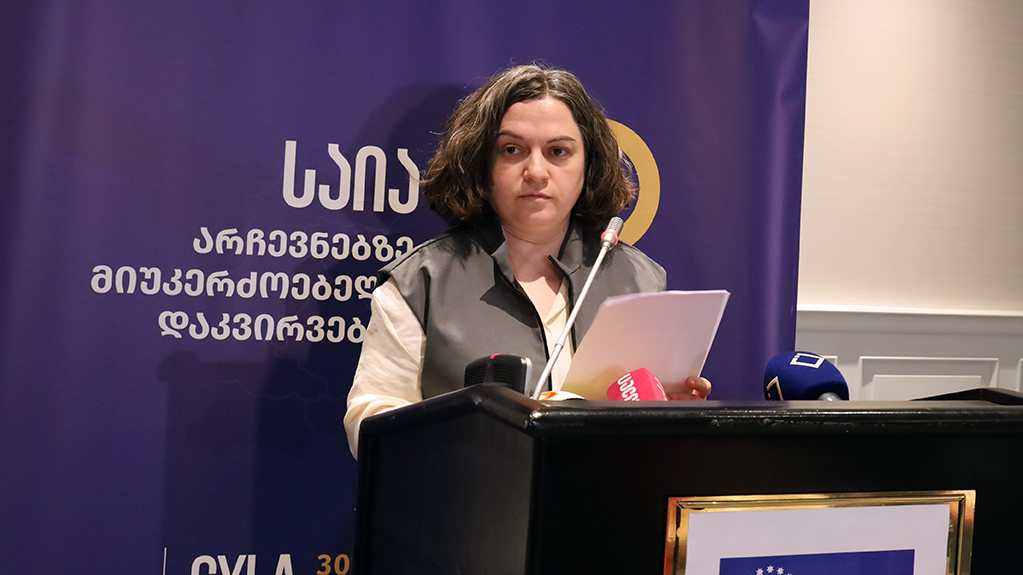As per the assessment by the Georgian Young Lawyers' Association, the parliamentary election day was marked by significant violations, occurring largely in an unequal, violent, and tense environment. As stated by the Chairperson of GYLA, Nona Kurdovanidze, serious violations were observed, including issues with marking procedures, obstruction of observers, breaches of voting secrecy, and interference with voter intentions.
News
The monitoring mission of the Young Lawyers' Association identified the following key violations:
Vulnerabilities in Basic Voting Procedures
According to GYLA Chairperson Nona Kurdovanidze, various violations of marking procedures were uncovered. In some cases, voters were either not marked or were asked if they wanted to use the marking liquid. Additionally, in certain instances, the special flashlight failed to detect markings, allowing voters to enter polling stations without proper inspection. Kurdovanidze also reported cases where voters with visible traces of marking were allowed to vote, instances of double verification, and some citizens voting multiple times.
Observers also faced numerous obstacles throughout the day, impeding a free and transparent observation process. GYLA documented threats against observers, disruptions by election commissions, verbal abuse, and cases of observers being expelled from precincts.
“There was an aggressive attitude towards observers, especially when they noted violations of marking procedures,” Nona Kurdovanidze stated.
Violations of Voting Secrecy and Influence on Voter Intent
As Nona Kurdovanidze said, Georgian Dream installed video cameras in most precincts monitored by GYLA. In some cases, these cameras were positioned to observe the registrar's desks and verification machines, and in others, they were directed at voting booths and the main ballot box. Observers also reported that the ballot quality sometimes left a colored circle on the back, which could compromise voter anonymity.
"The combination of these conditions significantly increases the risk of influencing voter intent," Kurdovanidze noted, adding that instances of secrecy violations were recorded, including cases of voters accompanied by unauthorized individuals.
Additionally, GYLA observers documented tensions outside precincts, voter registration issues, interference with journalists’ activities, improper conduct by commission members, illegal campaigning, and various flaws related to the use of electronic technologies. After polling stations closed, observers noted violations involving ballot invalidation, record book sealing, and the review of polling station documentation.
Nona Kurdovanidze stressed that the significant violations and doubts regarding the process's reliability highlight the need for the Central Election Commission to provide clarifications.
“In a situation where the entire voter list is loaded into verification machines, what mechanisms exist to ensure that duplicate lists have not been activated at different polling stations? This question is especially pressing, given the serious violations related to marking procedures,” Nona Kurdovanidze stated in a briefing.
Over 99% of votes have been counted. Preliminary results from the Central Election Commission show Georgian Dream with 54.08% of the vote, while four opposition parties collectively received 37.58%. Leaders of Coalition for Change, Unity - National Movement, and Strong Georgia have voiced that the results do not reflect the people's will. Meanwhile, the Gakharia - for Georgia party stated that systemic violations have directly impacted the election results, casting doubt on their legitimacy.















